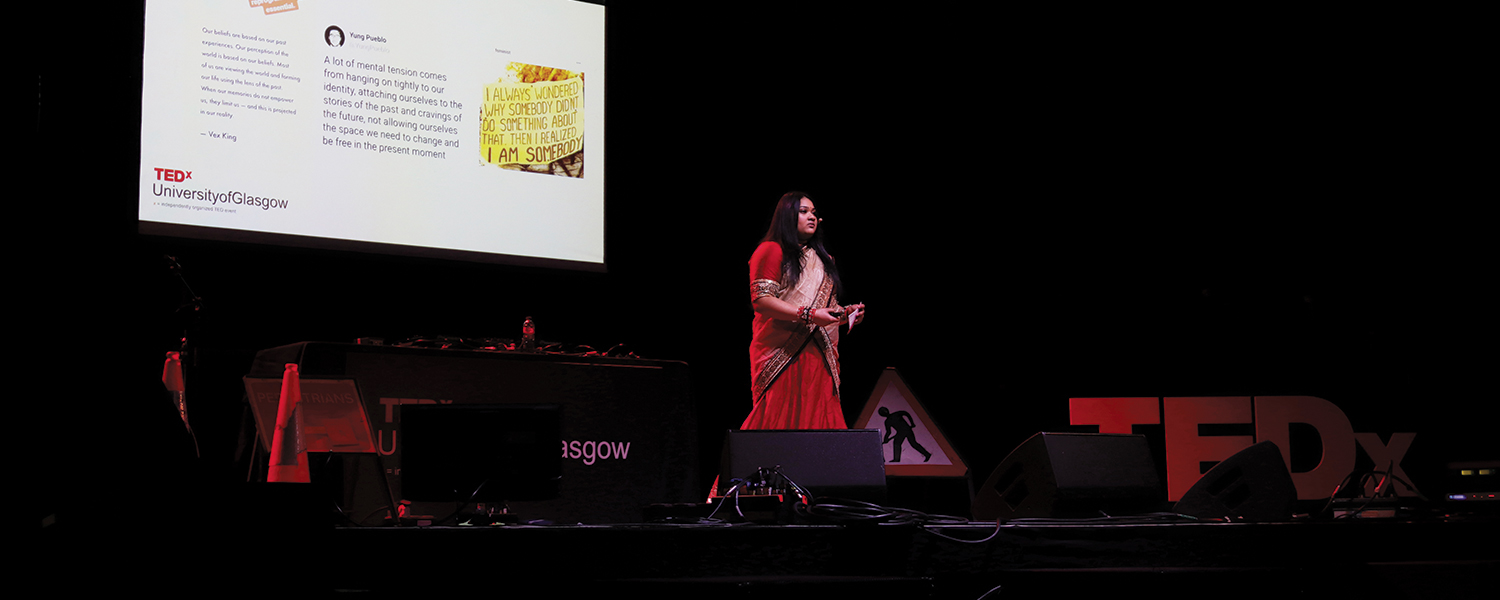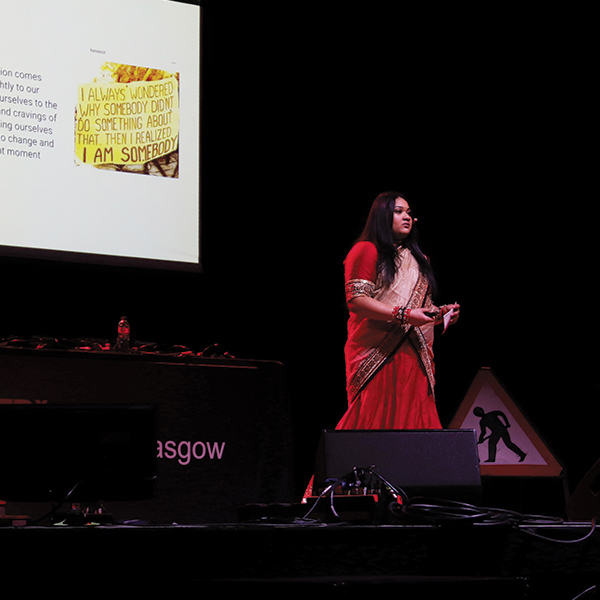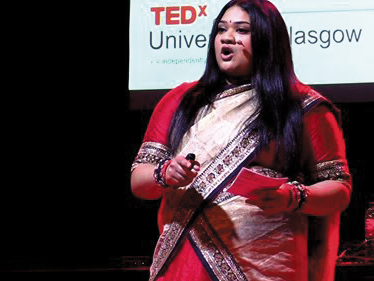TED (Technology, Entertainment, Design) is a prestigious, nonprofit organization founded “to make great ideas accessible and spark conversation.” The organization hosts events covering a variety of topics around the world each year.
To be selected as a speaker at a TEDx event requires competition against other prospective speakers.
“I heard about the auditions on the last day you could register, and I thought, 'I need to go for this,'” Polavarapu says. “Soon after that, I was on stage. I was nervous beforehand, but obviously my message resonated with people.”
She was selected by the audience as one of two speakers to present at Glasgow's TEDx event.
In her speech, Polavarapu addressed the lingering, ill effects of colonization on the minds of many historically marginalized minorities as well as the need to tackle problems in the developing world.
“Colonialism affects us in different ways. As someone who has moved from America to India and then back to America, I realized that there were a lot of things about myself that I hated because of my Indian culture. This idea of a colonial mentality stops people of color from expressing their true cultural form or how they want to live because of how they fear being perceived as less than or being the butt of the joke,” she says. “Once we know this exists, the best way we can move forward is by promoting intersectionality and by promoting a space where everyone can be themselves, and you're not judged by the color your skin or social constructs of race.”
She credits a medical anthropology course at Juniata with sparking her interest in these issues.
“It taught me how to look at a patient's story and not just their symptoms,” says Polavarapu. “Applying this to myself, I could backtrack and see how a lot of my family's personal history affected my mental health and how many of their problems stemmed from the United Kingdom's colonization of India. So, a lot of my own anxiety could be traced back to that.”
Having spent part of her childhood in India, Polavarapu has seen firsthand what life outside of the first world looks like.
“I still have this image stuck in my head from when I lived there. There was this kid, maybe 8 years old, who was holding his younger brother in his arms and they were begging on the side of the street,” she says. “I don't agree with a lot of social movements because I don't think they're intersectional enough. They're advocating for just one group of people when we should be advocating for everyone. I think that movements, instead of advocating for things like gender-neutral bathrooms, would be better served directing their energy towards giving aid to oppressed women and other marginalized people in developing world countries.”
With such impassioned convictions and the intelligence and courage to give them voice, her purpose on stage was to change hearts and minds.
“We're not free until all of us are free,” Polavarapu says.







